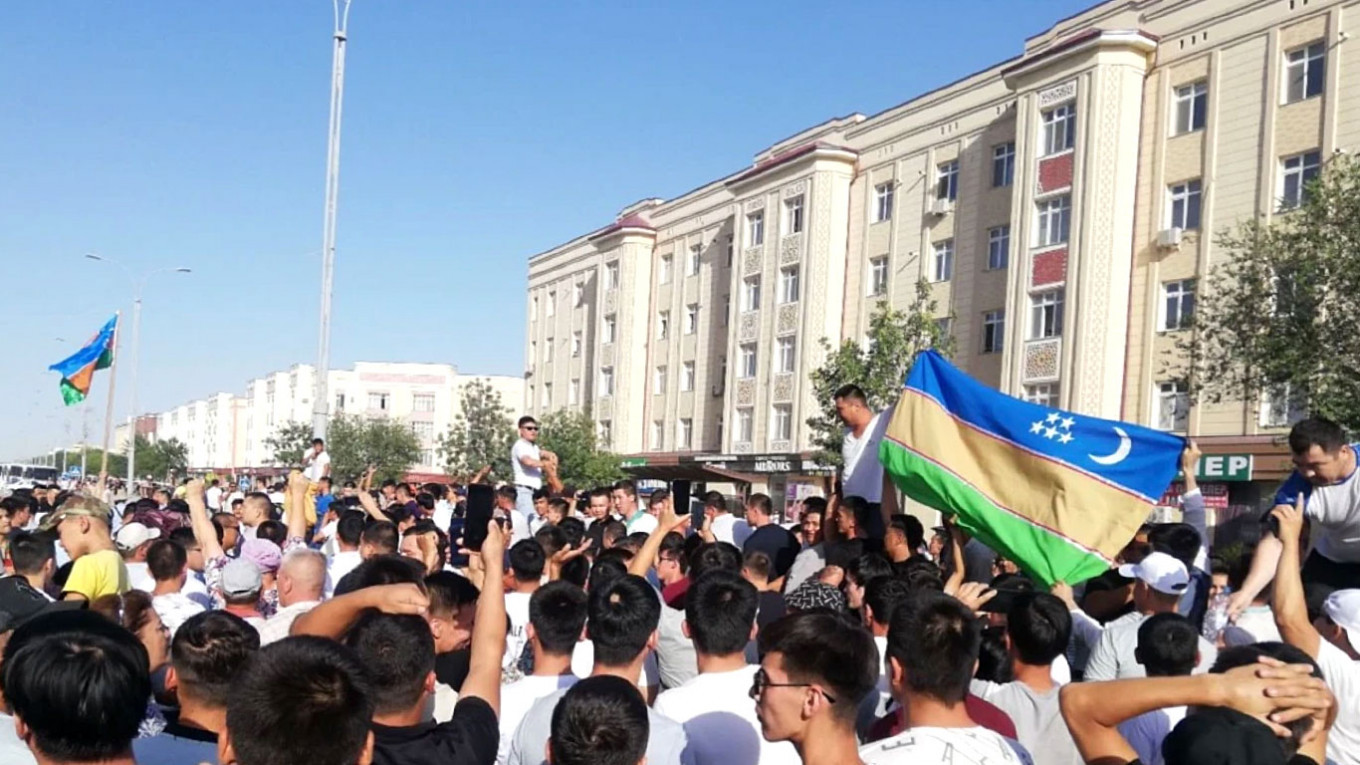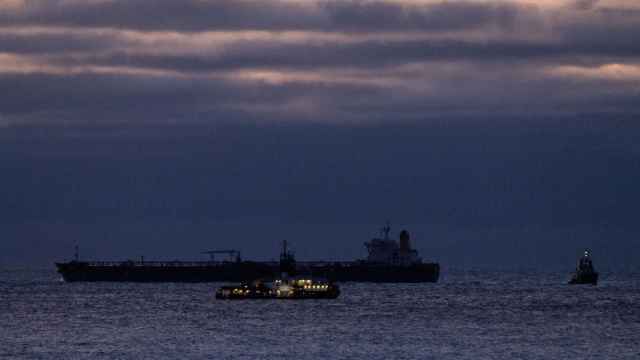Authorities in Uzbekistan said on Monday 18 people died in clashes in the autonomous Karakalpakstan region when mass protests erupted last week over planned constitutional changes affecting the territory's status.
The unrest, pitting protesters against security forces, represented the most significant challenge yet to the rule of President Shavkat Mirziyoyev since he rose to power from the post of prime minister in 2016, when long-serving mentor Islam Karimov died.
The size of the protest on Friday was unprecedented for the Karakalpakstan region and possibly Uzbekistan.
The security crackdown that ensued has drawn parallels with protests in the eastern city of Andijan in 2005, where 170 people were killed according to an official toll considered conservative at the time.
Uzbek lawmaker Bobur Bekmurodov said that analogy was "unfair" in a tweet on Monday, praising Mirziyoyev's willingness to engage in dialogue over the crisis.
In the aftermath of the violence, Mirziyoyev scrapped the constitutional amendments that would have removed the republic's constitutional right to self-determination.
Eyewitnesses told AFP of a tense calm in the region, where a state of emergency is in effect.
The diplomatic reaction to events in the remote region has been muted so far.
On Monday, the European Union called for an independent investigation into "the violent events in Karakalpakstan."
"We deeply regret the casualties and loss of human life and continue to follow developments closely," it said in a statement.
Russia, Uzbekistan's traditional ally and top trade partner ahead of China as of last year, indicated it had no plans to intervene.
Moscow, which is pressing ahead with a military offensive in Ukraine, said the events in Uzbekistan were the country's "internal affair."
"We have no doubt that with the active work of the leadership of the republic, all existing problems will be resolved," Kremlin spokesman Dmitry Peskov said on Monday.
Tensions in impoverished Karakalpakstan followed the publication of draft amendments to the constitution that removed the region's right to secede via referendum — a legacy of a deal reached between Karakalpak authorities and the Uzbek government after the collapse of the Soviet Union.
Abror Mamatov, an official with the state prosecutor's office, said during an online briefing on Monday that 18 people had died "as a result of serious injuries received during massive disorders" in Karakalpakstan's administrative center, Nukus.
A spokesman for the National Guard said 243 people were injured during the unrest, 94 of whom were hospitalized.
The spokesman, Davron Zhumanazarov, said 516 people were detained during the disorder. Some were given administrative punishments and released.
One amendment set to remain in the draft constitution will allow presidential candidates to run for seven-year terms, directly benefitting Mirziyoyev, who crushed token opponents to secure a second five-year term in October 2021.
Uzbekistan's parliament voted on Monday to extend the period of public discussion on the constitutional reform for another 10 days until July 15.
A referendum is expected to take place in the coming months.
Press crackdown
Karakalpakstan takes its name from the Turkic Karakalpak people — a sizable minority in the western region of two million people — and is closely associated with the drying of the Aral Sea, one of the world's great man-made environmental catastrophes.
Once the world's fourth-largest lake, the Aral shrank massively due to Soviet agricultural policies that saw rivers that fed into it diverted, largely to expand cotton production.
On Sunday, Mirziyoyev made his second visit to Karakalpakstan in two days and accused protest organizers of "hiding behind false slogans" and trying to "seize the buildings of local government bodies" in an address to local lawmakers.
He has sought to build a "New Uzbekistan" during his reign, which has seen some of the repressive excesses of the Karimov era trimmed.
His reforms have included some freedoms for the independent press in the landlocked country of around 35 million people.
However, the crisis in Karakalpakstan, which has seen major internet disruptions over the last week, has highlighted the limitations of his drive to open up the tightly controlled country.
On Monday, British journalist Joanna Lillis said she was detained by police for over an hour in Nukus and forced to delete video footage after attempting to interview relatives of detainees.
The Uzbek foreign ministry did not immediately respond to a request for comment about the detention of Lillis, who told AFP that she had been released.
A Message from The Moscow Times:
Dear readers,
We are facing unprecedented challenges. Russia's Prosecutor General's Office has designated The Moscow Times as an "undesirable" organization, criminalizing our work and putting our staff at risk of prosecution. This follows our earlier unjust labeling as a "foreign agent."
These actions are direct attempts to silence independent journalism in Russia. The authorities claim our work "discredits the decisions of the Russian leadership." We see things differently: we strive to provide accurate, unbiased reporting on Russia.
We, the journalists of The Moscow Times, refuse to be silenced. But to continue our work, we need your help.
Your support, no matter how small, makes a world of difference. If you can, please support us monthly starting from just $2. It's quick to set up, and every contribution makes a significant impact.
By supporting The Moscow Times, you're defending open, independent journalism in the face of repression. Thank you for standing with us.
Remind me later.






